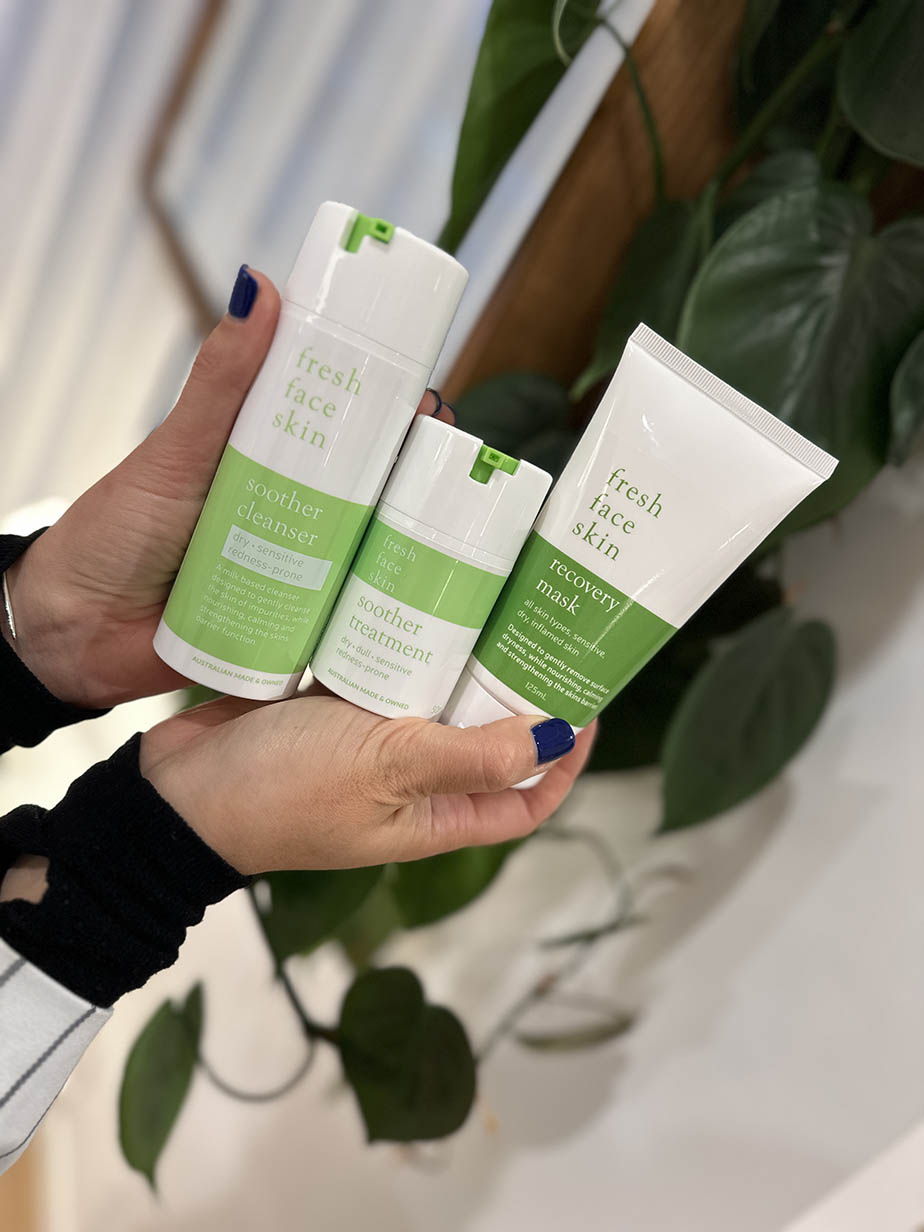My mother has always been a very active person, keeping herself busy with family and work, and she was an entrepreneur. However, she neglected her health and self-care, which eventually led to cancer. I was in my early 20s at the time, and being an emotionally sensitive and dependent person, it came as a shock to me—especially since she was planning to fly overseas to visit my elder sister, who was expecting her first child. I had to manage the whole situation, which was quite traumatic for our entire family.
During her treatment, my mother transitioned from being an active person to someone who had to stay indoors, with only minimal visitors due to her sensitive condition. As she coped with this change, she began analysing her strengths. She started journaling, practising yoga, and adopting healthy eating habits. She also began writing about her experiences and revisiting childhood hobbies that she had set aside after getting married and raising children. This shift gave her, and us, a new outlook and perspective on life: “Look at the positives within the negatives.”
She started writing magazine articles and sharing her creative ideas, such as crafts and cooking tips, on television. Eventually, she launched her own YouTube channel and released a book featuring over 200 healthy recipes.
So, all of this taught me the importance of:
- Self-care.
- The belief that every negative or unpleasant situation in life teaches us something new, helping us see the positives within an unpleasant situation.
- Seeking help when needed; it’s okay to express your thoughts and not shy away.
- Embracing unpleasant situations and then letting go.
- Men’s mental health: I noticed the emotional trauma my father went through. He tried his best to stay calm and handle the situations, but he did not cry, as we all grew up with the universal message that “men don’t cry; be a man.”
- Nutrition is extremely critical.
Launching the global project on period poverty and gender equality is a significant step forward. How do you envision this project creating tangible change, particularly for women in underprivileged communities?
The SuperNaari Project Equity Initiative, founded by Saroni Roy, CEO of the Saroni Roy Foundation, aims to educate and provide basic menstrual products globally. The goal is to reach 1 million Super Naaris in five years or less and ensure they have access to their basic rights and needs during menstruation.
Saroni’s mission is to support every menstruating person by creating awareness around menstrual and reproductive health and how it impacts life choices.
In many countries, girls and women are unable to participate in basic activities, such as swimming, during their periods. Numerous underprivileged communities cannot afford sanitary pads.
The initiative also includes installing vending machines for pads in public areas, raising funds to distribute sanitary pads, and educating all genders in schools and colleges about the importance of hygiene and the consequences of poor sanitary habits during menstruation.
The Period Poverty Initiative, spearheaded by Saroni, has my full support as part of her team at the Saroni Roy Foundation (SRF). I am extremely proud to contribute to this project, as I believe it addresses a critical issue that significantly impacts both physical and mental health.

As a co-founder of “Fingerprints,” how do you ensure that your workshops not only foster creativity in children but also promote sustainability through the use of waste materials?
Being from an artistic family, my sister and I grew up watching our parents create various items for our dance shows, TV shows, and school programs. For example, they would make face masks from broken bangles and multiple pieces of waste cloth or photo frames from cardboard. The idea of “best out of waste” became an interesting concept that we worked on as a family. In today’s environment, it’s extremely important to reduce waste and find ways to repurpose materials.
I started taking art and DIY craft classes for kids, which eventually evolved into Fingerprints, a workshop for primary school children designed to help them improve their creativity and thinking skills while also fostering a sense of responsibility, with a focus on sustainability. We engage kids in DIY crafts, encouraging them to think about how to repurpose waste materials, like milk bottle caps and containers. This instills in them a sense of responsibility to reduce waste and, when necessary, to repurpose materials, ultimately reducing landfill.
Our primary focus is to tap into kids’ creativity and thinking skills through crafts and STEM-based activities, creating innovative games. This approach helps them develop various skills, such as teamwork, problem-solving, and critical thinking.
We run after-school programs as well as holiday workshops, and we are working on expanding our initiatives into different communities and collaborating with various local organisations.
You’re involved in multiple ventures, from modelling to promoting small and medium businesses. How do you balance these diverse roles, and what drives your passion for supporting new entrepreneurs and designers?
When I started stepping into the community last year and extending my network to raise awareness about the topics I am passionate about, I realised that there are thousands of us facing significant pressure in our day-to-day lives, especially after COVID. I felt compelled to share my story of trauma handling and health and nutrition, as well as to create awareness around early childhood developmental issues and men’s mental health. To do this effectively, I conducted research on different communities and organisations. As an entrepreneur running a business in handmade jewellery and customised gifts, I reached out to many to gain a better understanding. All three segments—community work, modelling, and entrepreneurship—required me to engage with different communities and groups of people.
As I began working with these communities, I noticed many models, designers, and entrepreneurs trying to find their path. I readily offered my help. As I mentioned before, “helping or giving is a blessing,” so I never hesitated to support those seeking direction.
I am happy and proud to say that friends whom I supported have been able to establish their identities as pageant winners or designers.
I juggle a full-time job, community work, events, modelling, and family time, especially with two boys aged 11 and 2.5. Organising, prioritising, and asking for help when needed are essential. My husband assists me a lot with the kids when I am away for hours for shoots or events.
I also run a YouTube channel focusing on cookery and interviews with medical practitioners on topics such as child development and mental health.

You’ve won several community awards in just your first year of active community work. What do you think has been the key to your success in gaining such recognition so quickly?
Passion, focus, resilience, prioritising, a positive mindset, and, most importantly, sticking to our roots and staying grounded—no matter how successful one becomes—are essential. Last but not least, it’s important to be grateful to every single person who has journeyed with me.
I believe that every person in our lives, whether a stranger, friend, or coworker, plays a role in our growth. Even when we experience unpleasant situations with them, they teach us to become stronger, to “let go,” and that “nothing is permanent—neither success nor failure.” So, it’s crucial to remain grounded.
Mental health, particularly men’s mental health, is still a stigmatized topic in many cultures. How do you approach raising awareness and providing support in this sensitive area?
The factors that triggered my desire to create awareness about men’s mental health have been present since my childhood, especially during my teenage years. I noticed that the men in my family and social circles often did not express themselves or knew whom to talk to when they were upset. When women in the family faced health issues or when there was a loss of a loved one, the men would suppress their feelings and refrain from crying.
As I started travelling, I realised this issue is not necessarily cultural but a global one. Boys and teens have been told, “Don’t cry,” “Men don’t cry,” and “Be a man, be strong.” They fail to recognise that suppressing their emotions can have adverse effects on their health. Crying is often associated with fragility, while bottling up emotions is mistakenly seen as strength. Unfortunately, society has pushed men to exhibit strength in this way.
I also noticed that while communities raised awareness about women’s empowerment and supported survivors of domestic violence (DV), there were no events focused on men’s mental health. We did not discuss how to support men who may have experienced domestic violence or where they could go to seek help and guidance.
As a mother of two boys, I see it as critical to help boys, teens, and men cope with their emotions and feelings; by doing so, we also support women.
Through conversations with psychologists and further research, I have come to understand that built-up emotions, hidden and unleashed anger, and resentment are some of the causes behind aggressive human behaviour. This type of behaviour is a significant factor contributing to domestic violence in relationships. Research has shown that one of the prevention strategies for domestic violence is proactive and preventive psychology, which encourages adolescent boys to recognise their emotions and find a safe space to share them.
Although I have always worked with smaller groups and communities to raise awareness on this topic, last year I reached out to multiple local communities to explore how we could work together to spread awareness about the support available.
Earlier this year, I launched an initiative called MENTOO, a men’s mental health awareness program, in collaboration with Dr Niveditha Manokaran, founder of an organisation called UNTABOOS. UNTABOOS focuses on creating awareness about topics that have been considered taboo.
In just a few months, we have successfully completed two events. The objective of this program is to raise awareness about the support available for men’s mental health and to emphasise why it’s important for men to come forward and express their emotional issues. Men are allowed to express their feelings just as women are, and expressing any emotion is a human experience, not a gendered one.
We encourage families to attend the events because it’s crucial for all of us to support boys, teens, and men. This will help them cope with situations better and contribute to making our community a better place to live.
As someone who works closely with NGOs, how do collaborations with organizations like the Harman Foundation and Saroni Roy Foundation enhance your ability to make a broader impact on society?
I support various causes, such as raising funds for education in countries like India, conducting blanket and food drives with local community members here in Sydney, and participating in cancer awareness programs. However, I work closely with two organisations: the Saroni Roy Foundation and the Harman Foundation. The areas of focus for these organisations differ. For example, the purpose of the Saroni Roy Foundation is to inform, inspire, and engage multicultural communities and global citizens worldwide to create a safer, fairer, and more sustainable world. This year, they launched the “Super Naari” initiative, a Period Equity Initiative and Cultural Diversity Collective, with a mission to create opportunities and equitable access to basic human rights for girls, women, transgender men, and menstruating individuals who need it most.
I would also like to take this opportunity to thank my family, especially my parents, my sister, my husband, and my kids, for being extremely supportive and helping me become a better person each day.
























